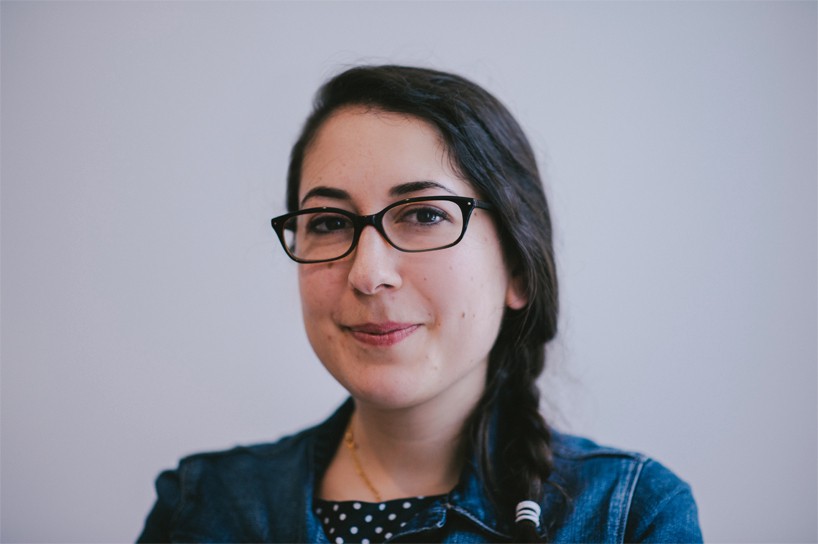Guest Post by Elhum Shakerifar
At the end of 2017, I was humbled to accept the Women in Film and TV Factual Award. The award recognizes outstanding achievement in news, factual programming, current affairs, or documentary work in film, TV, or digital media. It was particularly busy year for me — I produced four feature documentaries in 2017: Carol Salter’s “Almost Heaven,” Sky Neal and Kate McLarnon’s “Even When I Fall,” Hikaru Toda’s “Of Love & Law,” and Steven Eastwood’s “ISLAND.” Four out of five of these filmmakers are women, and all of them were first-time directors.
It gives us all great energy to be celebrated for taking creative risks but my wish for 2018 is for these films to be seen on mainstream stages.
I was honored to have a platform at WFTV to share my thoughts on the importance of visibility, and hope these words can contribute to encouraging a more interesting new year in filmmaking, programming, and viewing.
It’s always important to reflect on the impact of news and factual content, but these conversations are especially important in our current political climate. I produce documentaries, and my work sits somewhere in between understanding the world through its truths and storytelling.
I came to film from a different kind of storytelling — Persian poetry — and that is often the prism through which I understand things.
A Sufi fable that I come back to often when thinking about my work is that of the elephant in the dark room. There are many variations, but essentially the story is that there are a number of people in a dark room and each touching a different part of the elephant. For one, an elephant was something large and solid like a tree trunk, for another, an elephant was more like a pipe, and for another, an elephant was like a leathery flag. They were all relaying facts and were all telling the truth.
This fable has always represented to me the fact that reality is too large to make sense of, and that our individual stories give it form.
I recently read a variation of this fable, which suggested that the elephant was put in the dark room by someone. And that person was reveling in the fact that fights broke out among different individuals so convinced of their truths that they couldn’t understand anyone else’s.
It feels to me that we’re closer to this place today — we can all tell stories and there is more film, more content, more news, more talk now than ever before.
There’s been a lot of talk about diversity recently — film organizations all over the world are reflecting on who is telling stories. Funders such as the UK’s British Film Institute are putting systems into place to encourage diverse cast and crew on productions.
In the documentary world, there are ways for us to make films on our own terms, to speak in our own words, and to have agency. These often involve shoe-string budgets, open-minded foundation funding, and crowdfunding, and always involve patience, sheer determination, and drive.
But our new battle is elsewhere — it is in being seen, being listened to, being heard, being believed. The battle is for space — on mainstream stages and not only stages you’ve created for yourself.
Some of the most powerful people in the world right now are filibusters — they talk so much that nobody else even has space to contribute to the discussion. But we have a choice about what and who we listen to, and we mustn’t fall into the trap of not listening to the different understandings of the elephant.
I want to use this platform to urge you not just to listen but to amplify the quieter voices. Watch films by women and independent directors at the cinema, on TV, online. Do it especially if you’ve never heard about that director or can’t pronounce their name. Talk about these films and the people who made them. Validate their space.
If we don’t show that those voices are valuable even in the small spaces they occupy, not only will they never grow — they will cease to exist.
Reframing the narrative is a question of perspective. It’s what new years are for, so let’s make a real start.
Elhum Shakerifar is a BAFTA-nominated producer. She produces and distributes documentaries through her company Hakawati with the core ethos that a good story is all in the telling. Recent credits include “Almost Heaven,” “Even When I Fall,” and “ISLAND.” In 2015, her BIFA, BAFTA, and EFA-nominated production “A Syrian Love Story” won a Cinema for Peace Justice Award, screened in UK and European parliaments, and in over 70 countries. Her work has been broadcast internationally and screened at festivals including Berlinale, IDFA, and Rotterdam. She is a program advisor for London Film Festival for films from MENA and Iran, and Film Curator for Shubbak Festival.







